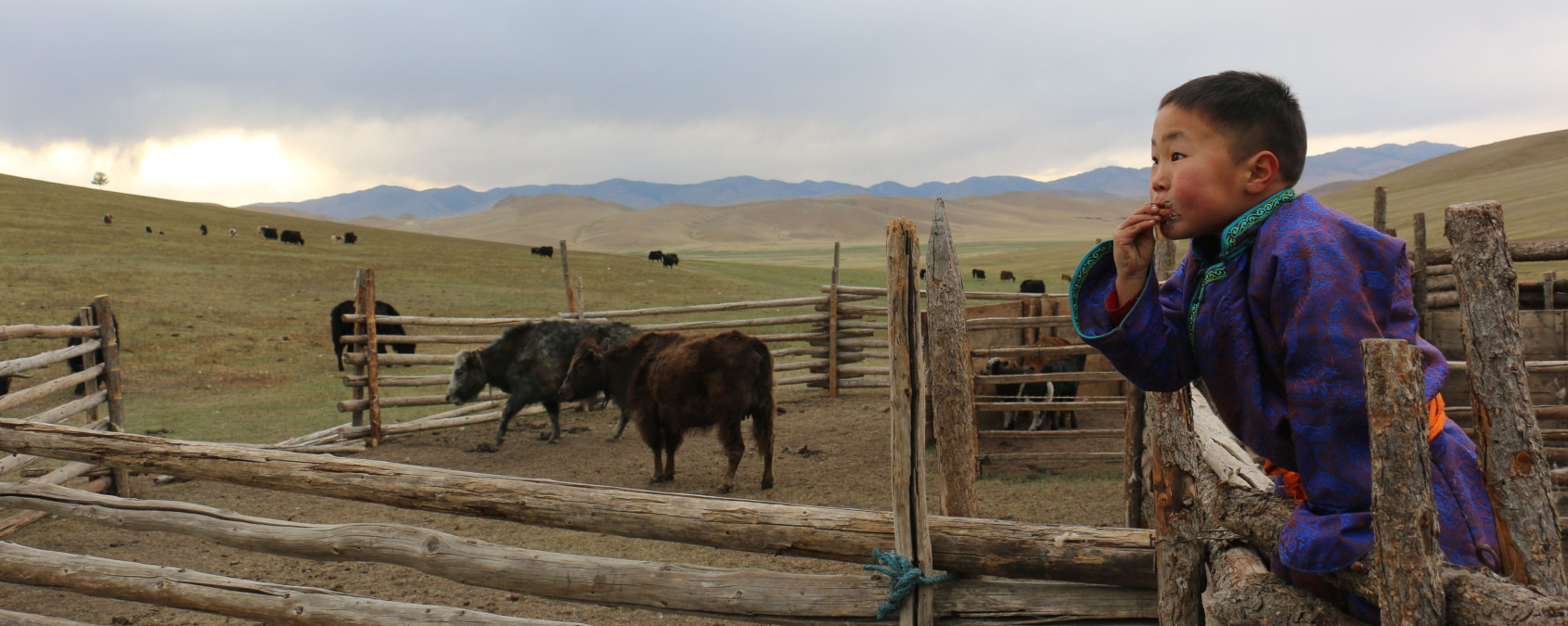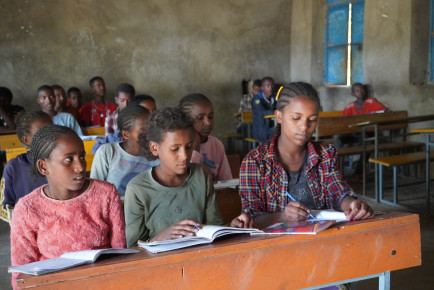“We have better products and more knowledge,” says cooperative head. People in Need supports business in rural Mongolia
Published: Jan 23, 2019 Reading time: 4 minutes Share: Share an articleThe majority of rural Mongolia still relies on herding as their main source of income. While farming, animal husbandry, and agriculture are also present in rural areas, entrepreneurs of small businesses lack the capacity to access information on financial resources and to develop income-generating activities.

In 2011, the government of Mongolia launched an initiative called the Soum Development Fund (SDF) to provide soft loans to rural entrepreneurs and help them finance their business endeavors. In order to access the SDF, entrepreneurs need to learn to write market fit business proposals, gather information about funding opportunities, and develop market linkages.
People in Need is supporting this process. Together with partners Mongolian Cooperative Training and Information Center (MCTIC), Knowledge Network (KN), and Mongolian Women Lawyers’ Association (MWLA), we are supporting and building capacity of 40 cooperatives, 10 civil society organizations (CSOs) and the local authorities of 10 soums in Arkhangai and Uvurkhangai aimags (provinces). This support is strengthening rural economic development through the Empowered People – Improved Livelihood (EP-IL) project funded by European Union and Czech Development Agency.
“I consider trainings very important to running a business successfully because as a result we have better quality products and better knowledge. Through the project we were able to get almost 70% of our knowledge on business development,” says Bayarmagnai Batsuuri, Chairman of “Ar Arvijin Delgerekh” Cooperative in Tsetserleg city, Arkhangai aimag.
Higher profit and capacity building for herders
Through cooperatives, People in Need indirectly contributes to improved livelihoods for herder families. Galbadrakh Purevsuren’s family joined the Ar Arvijin Delgerkh Cooperative in 2014. “For generations our family has been herding yaks, but since we joined the cooperative we were able to benefit from the animals we take care of and realized that our animals have good quality wool,” says Galbadrakh. They sell the yak wool to the cooperative, and at the end of each year receive dividends from the cooperative. Galbadrakh’s wife, Terbishragchaa, learned how to knit gloves, scarves, hats, and other small items through the trainings organized by the cooperative and sells them through the cooperative as well.
The family builds an additional yurt during the summer to host foreign tourists facilitated by the cooperative. Even though it is a seasonal business, the additional income helps. “The herders used to sell the yak wool to intermediaries and they would not get any further profits. Now as members of our cooperative, the herders are paid bonuses from the price difference,” says Bayarmagnai Batsuuri. “We also provide trainings on how to do business and other trainings that provide different skills to strengthen the herders’ capacity,” he adds.
A business plan as a compass
People in Need supports small entrepreneurs in developing their business plans. “The trainings I attended and the business cases we discussed through the project taught me that a well-developed business plan is an everyday business compass,” says Tungalag Tseren from Arkhangai aimag. After almost 30 years working as an economist at a local bank, Tungalag decided to try baking as a retirement business. She is now running a small bakery which supplies about 20 breads a day to local stores in her 4800 person soum Khotont.
Moreover, the EP-IL project helps CSOs, cooperatives, and other business entities better access locally available funding opportunities. The project disseminates information about the SDF and other funds on a grass roots level, and supports local authorities to improve local governance, citizen’s participation and dialogue between them and business entities.
Fairs and peer-to-peer visits improve market access
“The project builds the capacity of target civil society organizations, cooperatives and micro, small businesses by delivering them not only cooperative governance, business management and marketing trainings, but also tailor-made trainings such as bee-farming, knitting, leather processing, uncommon vegetable growing, and baking,” Urana Dashtseren, PIN Program Manager, explains.
The project also organized peer-to-peer experience sharing tours, including tours to big national factories, and facilitated the participation of cooperatives in national and local trade fairs and exhibitions to improve market access. It also equipped target CSOs and cooperatives with a tool to develop market demand based business proposals and plans. Now, target groups know about local level funding opportunities, 32 out of 40 cooperatives developed business proposals in collaboration with CSOs, and six of them received loans from local government funds.









